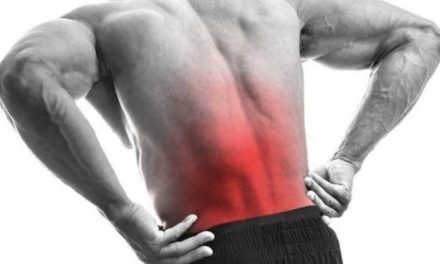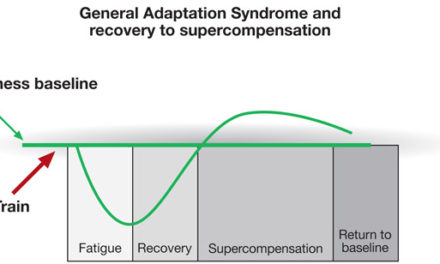On Tuesday February 20th the New York Times published an article in its health and wellness section entitled, “The Key To Weight Loss is Diet Quality, Not Quantity, a New Study Finds.”
Within 24 hours so many of our clients had emailed us confused and asking for clarification (and asking if we had been giving them bad advice as it now looked like calories didn’t matter) that it was clear that the article had struck a nerve.
And understandably so.
This article is full of excellent guidance but it also makes a terrible implication.
So join us today as we jump in and unpack this bad boy and get to the bottom of what is good, what is bad, what is excellent, and what is truly ugly about the New York Time’s article, “The Key To Weight Loss is Diet Quality, Not Quantity, a New Study Finds.”
The Terrible Implication
At its core, the practical guidance provided by this article (which we will cover later) is excellent but in its rush to provide prospective, it makes an extremely dangerous implication.
Through its wording, it implies that the number of calories you consume versus the number of calories you expend is not important.
This implication starts in the title, “The Key To Weight Loss is Diet Quality, Not Quantity, a New Study Finds” and it continues in the first two paragraphs, “Anyone who has ever been on a diet knows that the standard prescription for weight loss is to reduce the amount of calories you consume… But a new study, published Tuesday in JAMA, may turn that advice on its head. It found that people who cut back on added sugar, refined grains and highly processed foods while concentrating on eating plenty of vegetables and whole foods — without worrying about counting calories or limiting portion sizes — lost significant amounts of weight over the course of a year.”
What Determines Weight Loss?
Let us be very clear: baring an underlying medical issue whether you lose weight, gain weight, or maintain your current weight will be determined by the number of calories you consume relative to the number of calories you expend.
- Consume more calories than you expend, you will gain weight.
- Consume an equal number of calories as you expend, you will maintain your current weight.
- Consume fewer calories than you expend, you will lose weight.
This is the golden rule of weight management and the tenant that governs weight loss.
If you read this article and thought to yourself, “well, I guess the number of calories I eat doesn’t really matter as long as I focus on eating the right foods” the answer is NO, the number of calories you eat absolutely matters!
However…
The Big Confusion
Here is the thing about this article; it is mushing together two separate concepts, what determines weight loss and what the best method for achievingweight loss is.
Now these are certainly related questions, but very different.
And what this article is really addressing is not what determines weight loss, but rather what is the best way to approach your diet so you actually lose weight.
What This Article Gets Absolutely Right
Throughout this article you’ll find multiple references to the following general advice: focus on eating more vegetables, lean meats, fish, and whole grains and avoid highly processed foods with refined starches and added sugar.
Yes!
That is absolutely correct and great advice for a number of reasons.
1. Health Benefits
By consuming more fish, lean meats, whole grains, and vegetables you will dramatically increase the amount of lean protein, healthy fats, healthy carbohydrates, vitamins, minerals, phytochemicals, and fiber in your diet.
And this is beneficial because…
The more vitamins, minerals, phytochemicals, fiber, protein, healthy carbs and healthy fats in your diet the stronger and healthier your hormonal system will be.
The more vitamins, minerals, phytochemicals, fiber, protein, healthy carbs and healthy fats in your diet the stronger and more robust your immune system will be.
The more vitamins, minerals, phytochemicals, fiber, protein, healthy carbs and healthy fats in your diet the faster, and more efficient your nervous system will be.
The more vitamins, minerals, phytochemicals, fiber, protein, healthy carbs and healthy fats in your diet the less chronic inflammation and the pain that accompanies it you will feel.
Meal Satisfaction
The more fish, lean meat, whole grains, and vegetables you eat the longer and fuller you are going to be after each one of your meals.
The longer and fuller you feel after a meal the less cravings you will have for highly processed sugary (and fat adding) foods.
(Ever noticed if you start your day with sugary cereals, a muffin, a Danish, or some other highly processed sugary food how hungry you get by around 10 or 11 am?)
Less Caloric Intake
Now here is the most ironic part about this article, by focusing on eating more fish, lean meat, whole grains, and vegetables you lose weight… because… you will consume far fewer calories than if you ate a diet consisting of many highly processed sugary goods.
So even though the New York Time’s article is implying that calories don’t matter, the fact is the precise reason eating fish, lean meats, whole grains, and vegetables is so beneficial for losing weight is because they are calorically lighter.
This is the reason why we emphasize lean meats, fish, and vegetables (especially non starchy vegetables like dark leafy greens, broccoli, peppers, mushrooms, etc) so intensely here at Zach Moore Training when we work with individuals trying to lose weight.
Because highly nutritious whole foods, especially non-starchy vegetables and lean meat and fish, give you the best ratio of fullness to low calorie count.
And why do we care about calories count again?
Because baring any underlying medical issues whether you gain weight or lose weight will be determined by the number of calories you consume versus the number of calories you use.
The Ugly and The Excellent
At the end of the day, if you walk away from reading the Time’s piece thinking to yourself, “I think I need to increase my lean meat, fish, whole grain, and vegetable intake and reduce my intake of highly processed foods,” then awesome.
Because that approach is exactly how you lose weight, improve your health, and do so in a way that is actually sustainable for the long term. (No going on a juice cleanse is not an effective way of losing weight and staying lean. And we’ve got the studies to back that up!)
But don’t walk away from this piece thinking calories don’t matter.
They do! A lot!
Just remember emphasizing fish, lean meats, whole grains, and vegetables is the best way to lose weight and get healthy. But this is because by doing so you will nail the golden ratio of eating foods that are rich in nutrition and lower in calories, not because calories don’t matter.
Your exercise and coaching team.
And everyone, if you found today’s article insightful, inspiring or enlightening SUBSCRIBE and if you have a friend, family member, colleague or peer who you think would benefit from what we’ve talked about here today, pass this email on.
One of the best things you can do for those you care about is helping them to build a healthy and great looking body. A body that is strong, capable and moves without pain and a body in which they feel confident and happy.





